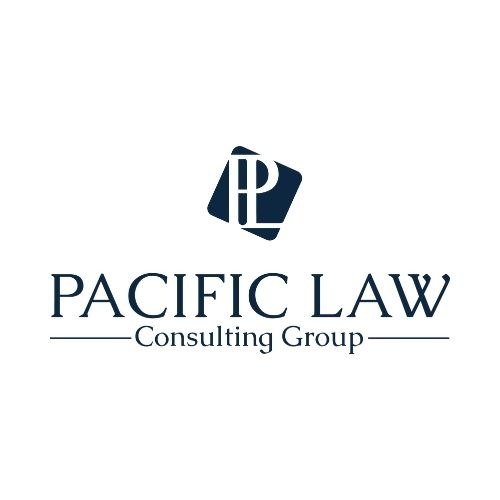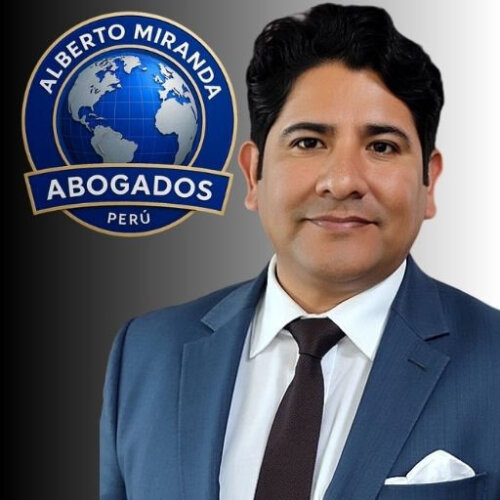Best Private Equity Lawyers in Lima
Share your needs with us, get contacted by law firms.
Free. Takes 2 min.
List of the best lawyers in Lima, Peru
About Private Equity Law in Lima, Peru
Private equity in Lima, Peru has become an increasingly dynamic and sought-after avenue for investment and business growth over recent years. This area of law pertains to the regulations and practices involved when private investors acquire equity ownership in Peruvian companies, typically those that are not listed on public stock exchanges. Lima, as Peru’s capital and economic center, hosts the bulk of private equity activity where local and foreign investors seek opportunities in sectors ranging from mining and infrastructure to technology and services. The development of private equity is supported by a robust legal framework and growing interest from both international and domestic funds.
Why You May Need a Lawyer
Engaging in private equity transactions can be complex due to the legal, financial, and operational considerations involved. People often seek the guidance of a lawyer in situations such as:
- Negotiating and drafting investment agreements.
- Conducting due diligence on prospective investments.
- Ensuring compliance with Peruvian legal and regulatory requirements.
- Navigating cross-border investment and foreign exchange regulations.
- Structuring private equity funds under Peruvian law.
- Planning and executing exits such as IPOs, sales, or mergers.
- Addressing potential disputes among investors or with portfolio companies.
- Protecting intellectual property and confidentiality during transactions.
- Managing labor, tax, and environmental law implications of private equity deals.
- Mitigating risks associated with anti-money laundering and anti-corruption regulations.
Lawyers with expertise in Peruvian private equity can help investors and companies navigate these issues successfully.
Local Laws Overview
Peruvian laws governing private equity are shaped by a mix of corporate, financial, tax, and foreign investment regulations. Key aspects include:
- Company Law: The General Corporations Law (Ley General de Sociedades) provides the primary structure for forming, managing, and dissolving corporations that are the typical targets or vehicles for private equity investments.
- Investment Laws: Peru encourages both domestic and foreign investment through laws ensuring equal treatment, protection of property rights, and access to dispute resolution. The Foreign Investment Promotion Law provides legal stability agreements and regulates repatriation of capital.
- Financial and Securities Regulation: The Superintendencia del Mercado de Valores (SMV) regulates securities, stock exchanges, and alternative investment vehicles, including private equity funds (Fondos de Inversión).
- Fund Formation: Private equity funds are structured typically as closed-end Funds of Investment (Fondos de Inversión), subject to specific operational, reporting, and governance requirements as set by the SMV.
- Tax Considerations: Transactions can be affected by corporate income tax, capital gains tax, and VAT depending on the structure and type of investment. Peru has some agreements to avoid double taxation for foreign investors.
- Anti-Money Laundering: Strict KYC procedures apply to private equity activities, monitored by the Financial Intelligence Unit (UIF).
- Employment and Labor Law: Labor regulations may become relevant during acquisitions and post-investment company management.
Compliance with these legal frameworks is critical to ensuring a successful and legally sound private equity transaction in Lima.
Frequently Asked Questions
What is private equity, and how does it operate in Peru?
Private equity involves investments in privately held companies or public companies to take them private. In Peru, private equity typically operates through funds that pool investor capital to acquire stakes in companies for eventual growth and profitable exit.
Can foreign investors participate in private equity in Peru?
Yes, Peruvian law encourages and protects foreign investment in private equity. There are no significant restrictions for foreigners, and profits can usually be repatriated subject to relevant regulations.
How are private equity funds regulated in Lima?
Private equity funds, or Fondos de Inversión, are regulated by the Superintendencia del Mercado de Valores (SMV), which oversees their structure, reporting, transparency, and investor protection.
What are the common legal structures for private equity funds in Peru?
Funds are generally organized as closed-end trusts or partnership types, managed by a regulated entity known as a Sociedad Administradora de Fondos (SAF).
What due diligence should investors conduct before committing capital?
Due diligence should include financial audits, legal title checks, verification of company ownership, review of liabilities, compliance checks, and assessment of regulatory risks.
Are there controls regarding foreign exchange and capital repatriation?
Peru’s legal framework allows for the free remittance of capital and profits, though investors must comply with reporting and anti-money laundering protocols.
What taxes apply to private equity investments in Peru?
Taxes may include corporate income tax, capital gains tax, and possibly VAT on certain transactions. Tax implications can vary based on the nature of the investor and structure of the deal.
Is it necessary to have a local partner to invest through private equity in Peru?
It is not mandatory by law to have a local partner, although partnering with local experts or entities can provide valuable market insight and facilitate regulatory compliance.
How are disputes in private equity transactions resolved?
Disputes may be resolved through negotiation, Peruvian courts, or through alternative dispute resolution mechanisms like arbitration, often stipulated in the investment agreement.
How can legal counsel assist in the private equity process?
A legal advisor will review and prepare contracts, conduct due diligence, ensure regulatory compliance, structure transactions optimally, and assist in negotiations or dispute resolution.
Additional Resources
The following resources and organizations are helpful for those seeking more information or legal guidance related to private equity in Lima, Peru:
- Superintendencia del Mercado de Valores (SMV): The official body regulating securities markets, investment funds, and advisers.
- ProInversión: The government agency tasked with promoting private investment in Peru, including public-private partnerships and concessions.
- Asociación Peruana de Capital Semilla y Emprendedor (PECAP): Industry association that gathers venture capital and private equity stakeholders in Peru.
- Financial Intelligence Unit (UIF): The authority on anti-money laundering and compliance for financial transactions in Peru.
- Local law firms: Many international and Peruvian law firms have specialized teams for private equity, mergers and acquisitions, and corporate law.
Next Steps
If you are considering a private equity investment or transaction in Lima, Peru, it is advised to:
- Consult with a qualified lawyer or law firm specializing in private equity and corporate law in Peru.
- Define your investment goals and gather documentation on prospective companies or funds.
- Engage legal counsel early in the process to assess risks, review contracts, and plan your structure.
- Conduct comprehensive due diligence and regulatory checks, especially regarding tax, labor, and anti-corruption compliance.
- Stay updated on any changes in Peruvian investment and financial regulations.
Proper legal guidance ensures your investment is well-structured, compliant, and positioned for success in Lima’s evolving private equity market.
Lawzana helps you find the best lawyers and law firms in Lima through a curated and pre-screened list of qualified legal professionals. Our platform offers rankings and detailed profiles of attorneys and law firms, allowing you to compare based on practice areas, including Private Equity, experience, and client feedback.
Each profile includes a description of the firm's areas of practice, client reviews, team members and partners, year of establishment, spoken languages, office locations, contact information, social media presence, and any published articles or resources. Most firms on our platform speak English and are experienced in both local and international legal matters.
Get a quote from top-rated law firms in Lima, Peru — quickly, securely, and without unnecessary hassle.
Disclaimer:
The information provided on this page is for general informational purposes only and does not constitute legal advice. While we strive to ensure the accuracy and relevance of the content, legal information may change over time, and interpretations of the law can vary. You should always consult with a qualified legal professional for advice specific to your situation.
We disclaim all liability for actions taken or not taken based on the content of this page. If you believe any information is incorrect or outdated, please contact us, and we will review and update it where appropriate.











